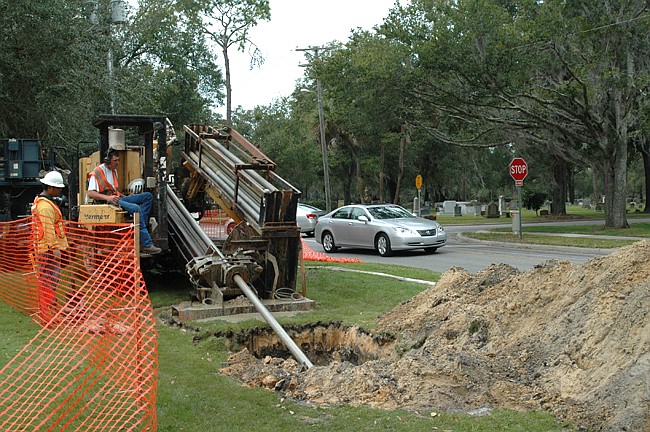- April 25, 2024
-
-
Loading

Loading

Winter Park says it’s found a way to make its power grid more stable and more economically efficient at the same time. On Aug. 30 the city joined the Florida Municipal Power Agency (FMPA), which helps spread costs over multiple cities by buying in bulk. Call it the Costco of electricity.
“There’s definitely a price advantage in bidding as a group,” FMPA spokeswoman Diane Nelson said. “Individual cities can share costs.”
Those costs can be for anything ranging from transformers to power lines to electrical energy.
“A number of times a year we’ll go out to bid for common items like poles, wires, PVC, all kinds of materials utilities use,” FMPA spokesman Mark McCain said. “Then utilities can buy as little or as much as they’d like to. It takes advantage of the economies of scale.”
It also spreads out the costs of buying and running power plants.
“The problem with power supply is if you make a commitment to build a coal unit, and 10 years later it turns out that coal wasn’t the way to go, then you’re screwed,” Winter Park Electric Utility Director Jerry Warren said.
“That’s the primary purpose we were formed in the 1970s,” McCain said. “Back then the cost of oil went sky high and the cost of electricity went sky high, so the best alternatives were coal and nuclear. But in order to build one of those, it has to be so huge that it can be cost effective.”
With an organization like FMPA, cities could buy into sources from numerous types of energy generation, so that a sudden power plant shutdown or energy crisis wouldn’t affect their costs as much.
“They realized instead of owning just one small unit, they could diversify their ownership in numerous types of power generation,” McCain said. “They can have a little bit of coal, a little of nuclear and a little of natural gas.”
Most of FMPA’s electric utilities operate off of energy from natural gas, coal and nuclear power, McCain said, though they have some renewable resources as well.
The two giant cooling towers rising conspicuously above the flat Florida landscape east of Orlando International Airport may be a familiar sight for the wrong reason, McCain said. They’re not part of a nuclear power plant; they’re actually coal power plant cooling towers. But they also burn off gas from a renewable energy source Floridians may not have heard of: landfill gas. The gas from biodegrading garbage is collected and piped into the power plant where it’s converted into electricity.
A plant in Clewiston harvests discarded sugar cane husks en masse and burns them for electricity. Down in Key West, a small utility project built a solar power facility.
Those are some of the options Winter Park will be able to buy into if it ever needs more electricity than it does now, which is a possibility in the future, Warren said. The city owns its own electric utility company, which has served customers since 2005. When the time comes to expand, through FMPA the city could be able to buy a share in power plants for much less than the going rate.
That may be a bit farther down the road than the city’s initial partnership with FMPA, which Warren said is just to see what the agency can offer the city. Winter Park paid about $2,700 to sign up, Warren said. If the city does buy energy from FMPA, he doesn’t expect much, if any of the power to come from renewable sources, at least not in the near future. As is, utility prices should be unaffected in the near term.
“At this point they have more capacity than they have load, so they’re in the marketing business right now,” Warren said. “They’re not in a ‘look for innovation, look for a new power supply’ mode right now. They’re in a ‘get rid of our excess power supply’ mode.”
Either way, it could make the city more prepared to weather the storm, be that literal or financial.
“I have two primary responsibilities: to deliver electricity at one of the lowest prices in the state, and to have it be reliable,” Warren said. “If I can do both of those, then I think I’ve done my job.”